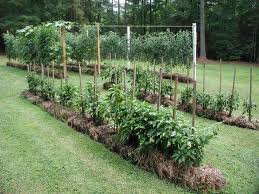Drawbacks of Organic Farming
Organic farming actually means the way people were producing foods for several years before the synthetic and chemical fertilizers became dominant. The process of organic farming never allows synthetic pesticides, fertilizers, GMOs (Genetically Modified Organisms) or herbicides. At gardeninginfo-online.com, we know that organic farming is more than that. The organic farmers find solutions by removing harmful chemicals from the farming process. There can be several issues like intensive labor, soil degradation, harmful wild plants etc. with fertilizers. Organic farming requires natural techniques and labors like crop rotation, biological pest control, compost in order to prevent these issues.
Cons of Organic Farming
Productivity
The proponents of industrialized agriculture mainly ensure superior productivity. This yield can be possible be expending massive inputs of machinery and chemicals. However, for a longer period of time, there are hardly any productivity advantages. Industrialized agriculture mainly thrashes the land and diminishes the life of the soil where it can’t function any longer to convert the organic matters into soil fertility.
Cultivation
When the conventional counterparts sow by direct drilling of seeds into soils treated with herbicide, the organic farmers are dependent on the cultivation to remove the weeds before sowing. In cultivation, the direct drilling does not disrupt the soil and removes the risk of exposed soil lost due to water or wind erosion. The farmers work for marginal quality soils. Whatsoever, the structure of the chemical-deadened soils is weakened by the loss of soil life and is unable to maintain the integrity under cultivation. Life-rich soils can be cultivated regularly without any damage, if protected by the windbreaks and soil conservation measures.
Genetically Modified Crops
The organic growers never use engineered or genetically modified food crops, some of these are genetically engineered in order to tolerate herbicides or resist pests. On the other hand, conventional growers can take advantage of GM crops.
The genetically modified crops are negligible while in certain growing conditions. In most cases, the experience of the farmers and the type of the soils is considered. Genetically modified crops can be harmful to both human health and environment.
Time
Organic farming mainly requires much greater interaction between the crops and farmer for timely intervention, observation and control of weeds. It’s more labor intensive than chemical agriculture. So, a farmer can produce more crops than using industrial methods.
Skill
Organic farming requires more skill to farm. However, because professional farming imparts a close and observant relationship to living things, the best organic farmers are converted to the agrichemical farmers. Organic farmers engage greater understanding and careful observation to know how to tweak the farming system to correct the cause of every problem.
This is a greater issue in the conversion period from conventional to organic when the transition related problems are peaking. It takes much time to build a healthy farm ecosystem which copes well without the synthetic crutches. Thus, you can say that with intensive use of machinery and labor, organic farming produces lower yields than the industrial farming. Extensive knowledge and skills are required to make the organic business competitive. Processed organic foods have shorter shelf-life than the regular ones. However, biological pest control is not at all 100% effective. There can be considerable amount of crop loss.
The positive effects which organic foods provide to consumers outweigh the disadvantages. From the business perspective, demand of forecasting systems and effective inventory control can solve all these issues.